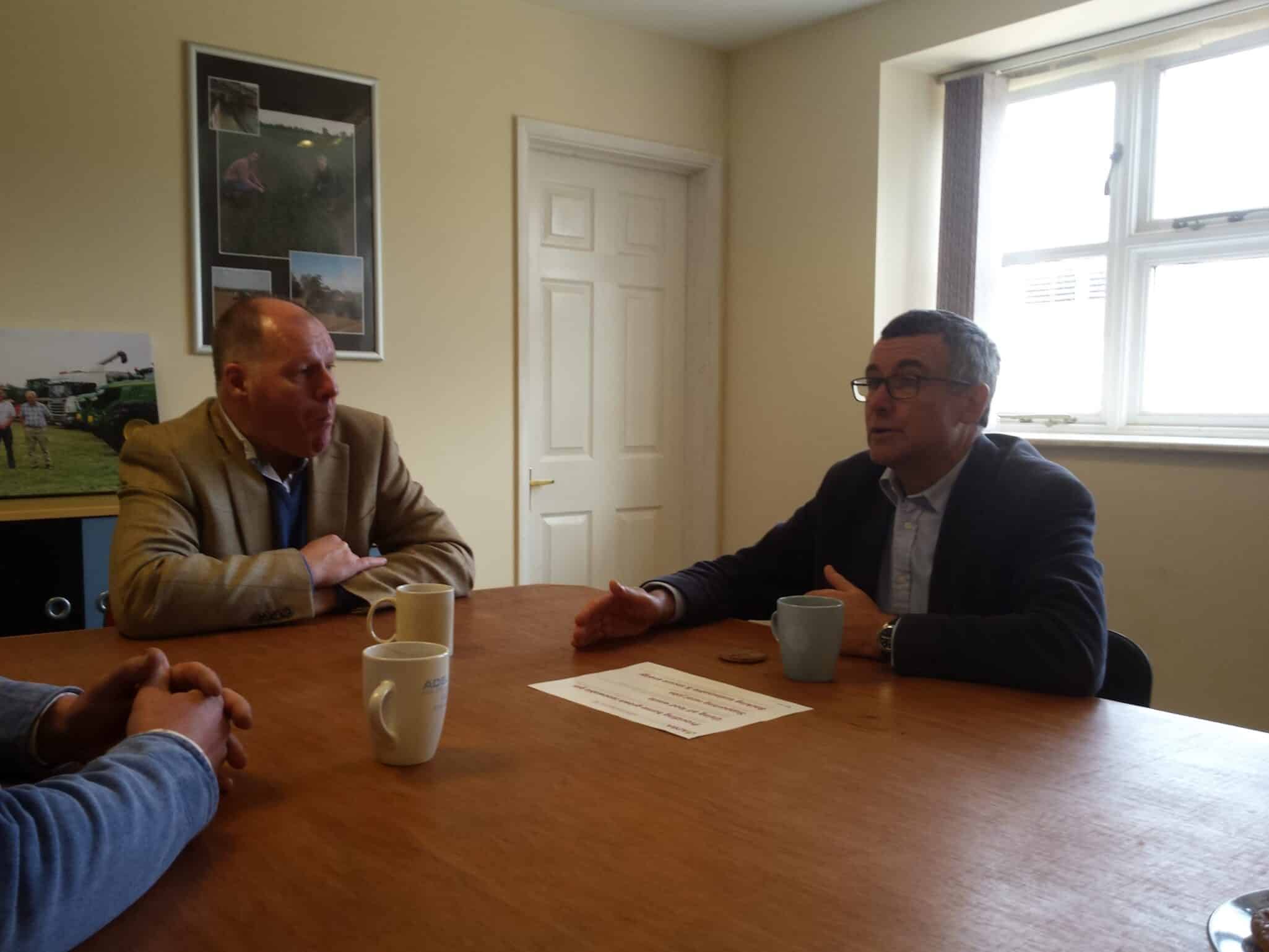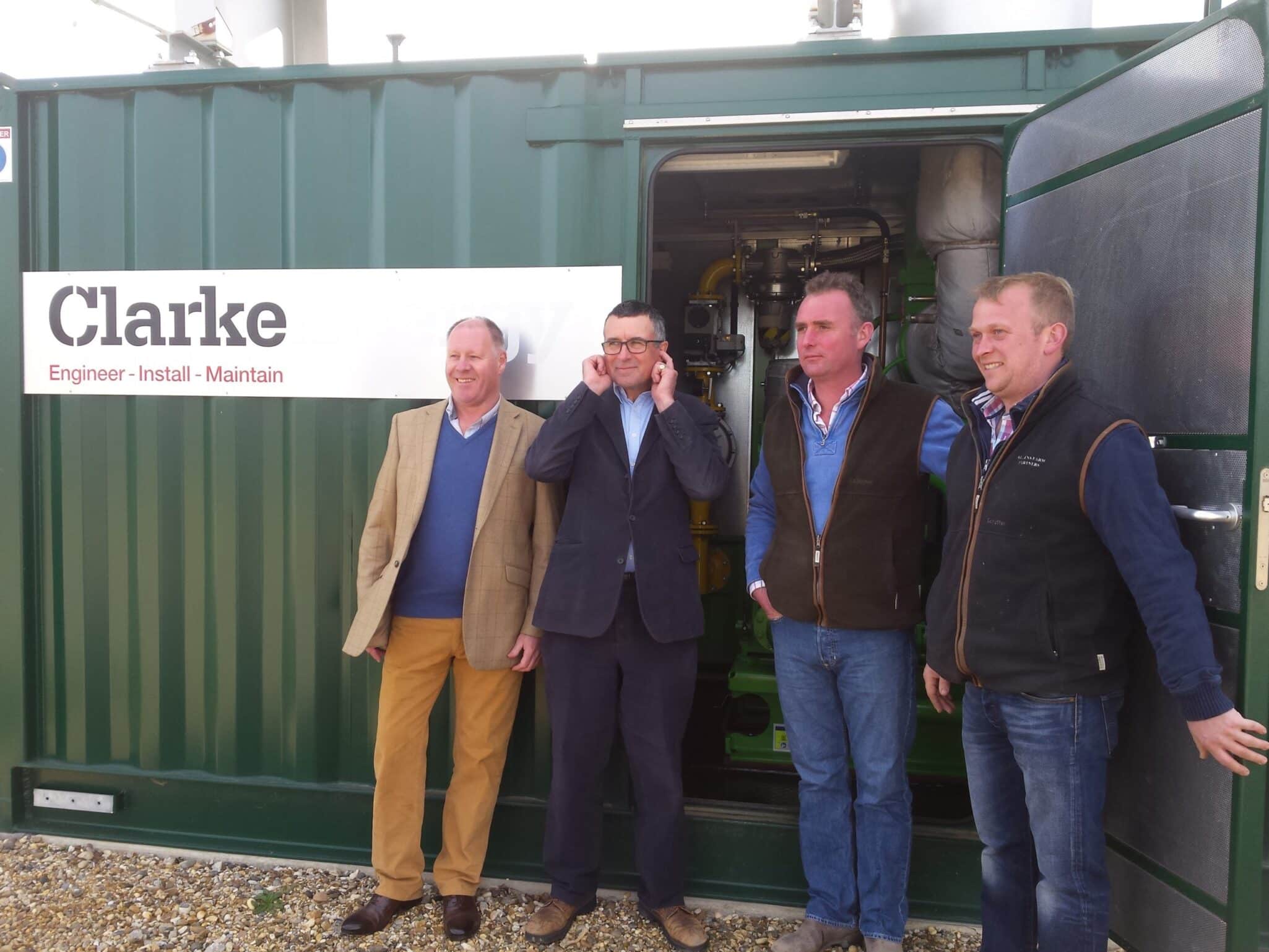MEMBER PRESS RELEASE - Vogelsang to present the HiCone for the wastewater sector at IFAT…
Hobnobbing your MP
Getting politicians on board
All it takes is a short letter, like this, to the constituency office of your local MP or candidate and you too could help influence the government policies which affect our industry just by highlighting the benefits of AD through a tour of your site/company. As you’ve seen many ADBA members have already engaged with politicians in their area to help promote the future of the industry.
Just last week (13/03), North Essex Conservative MP, Bernard Jenkin, highlighted his ‘green credentials’ while touring Full Circle Energy’s 500kW on-farm anaerobic digestion (AD) plant near Elmstead. This picture shows Mr Jenkin sat around a table with our pledge card discussing industry challenges over a cup of coffee and hobnob. This type of engagement could help establish a lasting relationship for your business, the wider industry and potential a vocal advocate of AD in Parliament.
With our foot in the door, we have now been able to follow up that meeting with a detailed policy briefing breaking down our key industry asks and summarising the numerous benefits of AD. This work is essential to building understanding of the vital role of our industry, and winning future support in debates about financial incentives, waste policy and regulation.
Touring Full Circle Energy’s AD plant
Full Circle Energy’s plant, operated by three local brothers, currently generates enough renewable energy to power about 1,023 homes every year, however, over the coming year they will be looking to expand, doubling the plant’s capacity to 1.2MW; generating sufficient green energy to power about 2,500 homes.
Bernard Jenkin MP commented during his tour:
A strong and successful farming community is crucial to the country’s long term economic plan, and supporting farmers’ ability to diversify and generate new income streams is central to that.
The Coalition Government made a commitment in its coalition agreement to support a huge increase in AD and it’s fascinating to see the fruits of that investment first-hand. Full Circle Energy utilise on-farm organic material, such as agricultural waste, to generate home-grown green gas – which could be used for heat and electricity in 1,023 households – and a biofertiliser that recycles essential nutrients back to our soils, supporting future food production.
Renewable energy sources are essential to ensure that we are less dependent on expensive sources of energy from volatile parts of the world, such as Russia and the Middle East. As old capacity comes off line and competition for limited fossil fuel reserves becomes increasingly accentuated, Ofgem has reported an increased risk of blackouts as energy bills continue to soar over the next decade.
Plant operator and local farmer, David Hunter, added:
Anaerobic digestion fits perfectly into existing farm businesses like our own. By generating renewable energy and biofertiliser from existing farm wastes (such as manures, slurries, discards, outgrades and residues) and/or break & cover crops, AD enables us to diversify our revenue streams and reduce our input costs.
AD produces a renewable gas, which has certain unique advantages, not least in that it is storable, flexible, baseload energy. This means an AD plant generates electricity even when the wind isn’t blowing and the sun isn’t shining. However, the technology offers more than just renewable energy, including waste treatment and recycling essential nutrients back to land to support food production.
Thanks to the government’s commitment to AD, we benefit from government incentives for the green energy, while the biofertiliser can be used in place of expensive chemical-based alternatives, saving money.
The Anaerobic Digestion & Bioresource Association’s Chief Executive, Charlotte Morton, explained:
Ever more farmers are realising the benefits of AD, with the number of agricultural AD plants having doubled to 139 in the last year. That’s progress, but the NFU estimates that there could be as many as 1,000 on-farm AD plants by 2020.
AD can double the emissions savings of technologies which only generate low carbon energy. This is largely through a combination of low carbon energy generation, methane mitigation – for example by processing manures and slurries which otherwise would be stored in open tanks – and biofertiliser production which can replace carbon-intensive artificial fertilisers. AD could reduce the UK’s total greenhouse gas emissions by over 2% – a huge contribution from a relatively small industry offering exceptional value for money.




